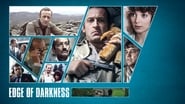CrawlerChunky
In truth, there is barely enough story here to make a film.
Gutsycurene
Fanciful, disturbing, and wildly original, it announces the arrival of a fresh, bold voice in American cinema.
Fairaher
The film makes a home in your brain and the only cure is to see it again.
Kien Navarro
Exactly the movie you think it is, but not the movie you want it to be.
chaos-rampant
A mainstay in my viewings is films about the mechanisms of deception, these range for me from Welles to Raoul Ruiz where it's about the imaginative mind weaving stories to inhabit, to spy fiction like Tinker Tailor where it's about modern anxieties of a world dislocated from sense. I enjoy all these for their contours of a shifting storytelling where narrators vie for control; but more than that for me is the Buddhist wisdom that our propensity to deceive ourselves with attachment to stories lies at the heart of our modern lack of center.This is one that came highly recommended. It's in the British TV tradition I love; transparent eye for observations, elusive causalities, patient unfolding of political machinations as they envelop and overlap. It has the gloom of a Britain finding itself dejected without empire.The overlap is rich and hazy, with several agencies entangled in a struggle for control of a story, layers upon layers of deception. Plots and counterplots around England. A provincial detective whose daughter is murdered right before his eyes one night unravels for us; the idea is that we will always be a little out of our depth in this murky world and will have to surmise our level of engagement. We will have to not be quick in attaching ourselves to any story.It peters out in the last two episodes where we get message-y morals shouted at us about destructive technology and mother earth, almost a cartoon. Particularly egregious in two speeches that mention an "American solar empire" and "plutonium crusaders". The world has simply shifted since Reagan so worries about wiping ourselves with nukes or colonizing space are far more distant now. I write this as Iran is being brought back from the (nuclear) cold this weekend.The worthwhile portion that I keep with me is in the first few parts. We make our way through a complex world where urges linger in the air from a regretful past and where causalities elude and overlap to create ambiguous knots. This is all seen in his daughter's murder; someone he wronged long ago in Northern Ireland has come back to haunt, lured in as part of another plot that conceals.It's all about this man, a schmuck like in a film noir, who must walk around mute with the loss. About all that surfaces to him as he pursuits the story, things left undone when he had the chance. The story is really about how he comes to know his daughter more deeply; spirited activist, lover, bold in her pursuits, more than he ever was. All through it she manifests around him ghostlike, visions and memories.I would have liked to see the truth of what that means to him explored, we can get break-ins to steal plutonium from a nuclear plant from James Bond. It could have been worthy of a Singing Detective but as a primary text this is on a par with Smiley.
Dolescum
A true classic of British television drama. I remember this from its original airing in the UK and the release of the remake prompted me to buy the DVD version of the original series to see if it still has the means to captivate.It does.I say you you watch this series first and yes it may seem a stretch at around 5 hours but this sets the bar that the newer production has to hit. I very much doubt however that it will as Hollywood can rarely ratchet up the tension in the way the 1985 version does without resorting to pyrotechnics and burning rubber. Mind you with the original Director at the helm, who knows what can happen.
michaelj108
One of the central political points of the story is that policies come and go, but people stay. When one policy is set in motion, it rolls on, even if back at headquarters the policy has changed. Darius Jedburgh explains the changes of policies in Washington to Ron Craven, with a shrug. The policy changed but the people who worked for the previous policy went on. Policies can be turned on and off, in this case, by executive orders, but people cannot. When Jedburgh set up GAIA he recruited believers who would do some serious work, and when Washington policy changed, they just kept going as best they could. There is an important message here that few people in the policy business never get. Once something is started, it may take on a life of it own. The lesson to draw then is to be careful about what is started, a lesson few learn.
steve_heaton
While you could make a good argument that TV doesn't have much to offer as a medium, this mini series stands as a blazing example to the contrary.I doubt if this story would of worked as a movie. The suspense is slowly built per episode. Nothing blatant. Lots inferred. Brilliant writing. Superb acting. Haunting. Funny. Disturbing. The story is probably as relevant now (2005) as it was back in '85.The music score alone makes it worth adding to your DVD collection. Michael Karmen and Eric Clapton work magic on the score. (A poor copy following in Lethal Weapon 3).When it's over your heart won't sing; you probably won't have a smile on your face. Maybe a tear on the cheek? However, you'll be glad you watched it and rave about it later. It's a moving, gripping piece of work.




